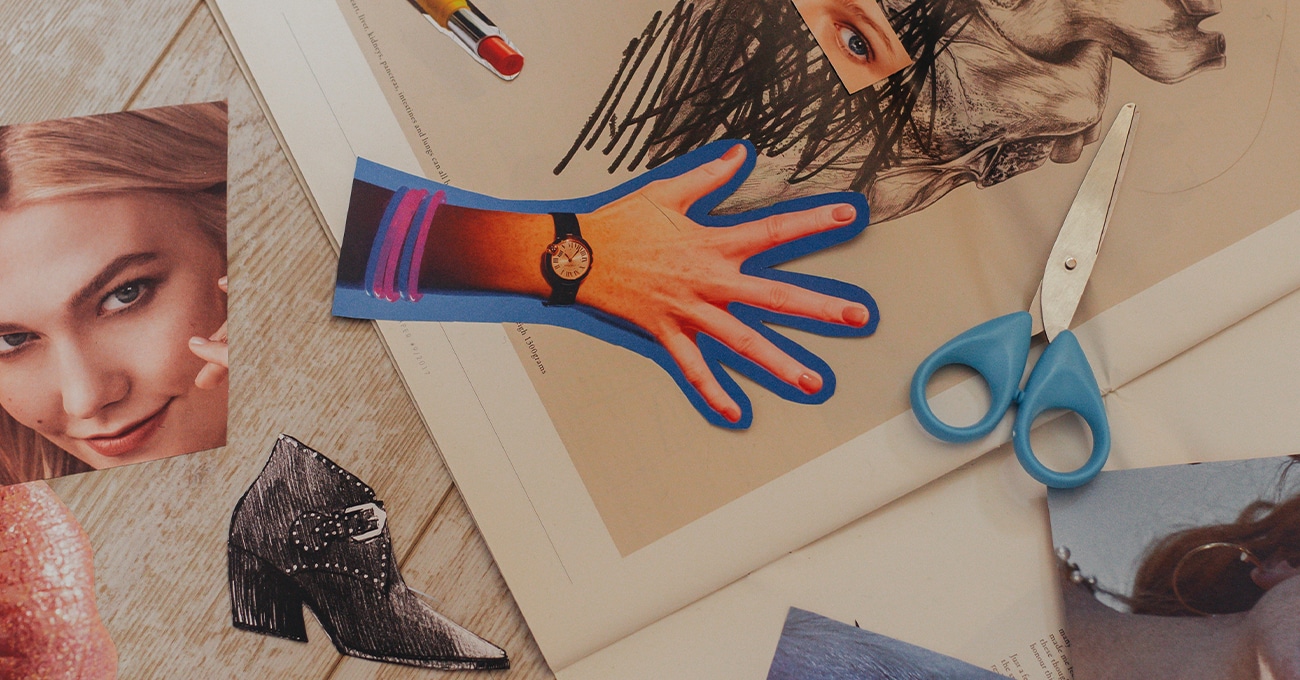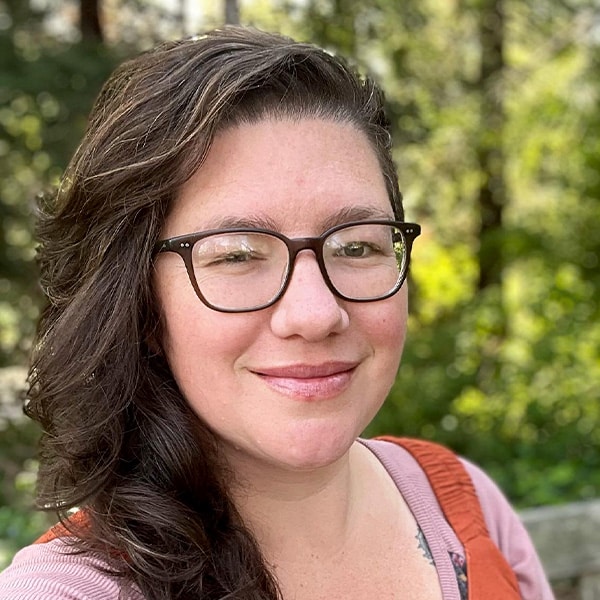PHO 333: Creative Exploration
Get messy as you explore new photography techniques
Explore, experiment, and expand your ability to manipulate, fabricate, and conceptualize images through the use of technology, alternative photographic processes, innovative photo setups, mixed media, collage, digital compositing and/or other approaches to creating unique and compelling images.

About This Course
Project-Based Learning
Creative course projects include conceptual photography, material/supplies/technique experimentation, post-production, and collaborative work.
What Skills Will I Develop?
Students in this course can expect to learn to:
- Explore and research a variety of creative image-making and photo related techniques such as employing technology, digital compositing, alternative photographic processes, innovative photo setups, mixed media, collage, and/or other approaches to creating unique and compelling images.
- Research and examine the work of recognized photographers/artists who employ mixed media strategies to produce their professional and artistic work.
- Experiment with and expand your ability to manipulate, fabricate, and conceptualize images through innovative uses of technology, alternative photographic processes, innovative photo setups, mixed media, collage, digital compositing and/or other approaches to creating unique and compelling images.
- Examine, gather, analyze, synthesize, and professionally present research and creative work in alignment with the course content, assignment criteria, and presentation guidelines.
- Actively participate in class discussions/meetings, constructively assess the work of your peers, and enhance your creative work based upon feedback.
- Effectively generate, clearly convey, and support ideas by employing critical thinking, communication, and writing skills while considering divergent perspectives, cultural framing, historical context, research, and ethical concerns when providing critiques of peers’ work and participating in presentation sessions.
- When applicable, demonstrate effective and efficient use of your camera and create photographs with careful consideration of lighting, color, exposure, composition, art/design principles, and point of view in alignment with the course content and assignment criteria.
- If in alignment with your concept(s), plan, stage, and execute photo shoots by adapting for a variety of settings and lighting situations (studio and on-location). Reshoot when necessary or recommended.
- Where applicable, apply and demonstrate technically proficient retouching, careful consideration of contrast, cropping, exposure, and color correction techniques to improve or enhance photographic images to a professional level utilizing appropriate software such as Adobe Lightroom and Photoshop.
What Software and Supplies Do I Need?
- Computer with Internet connection.
- Digital camera required, adjustable ISO and adjustable white balance features recommended.
- Adobe Photoshop, Lightroom Classic, or equivalent program.
- Basic experience in the software package needed for this course.
- Art supplies as needed, depending on selection of projects.
Course Instructor(s)
The course is taught by the following instructor(s):

Felicia Kieselhorst is freelance photographer with her own business based in Oakland, CA. Felicia specializes in wedding and product photography, and works in digital and film photography, using primarily Nikon, Hasselblad, and an array of toy cameras.
Course Outline
Conceptual Experimentation.
We'll explore how conceptual approaches can create images that tell a story, deliver a message, or evoke a mood or feeling.
Unusual Materials, Equipment, and Techniques.
We will discuss how utilizing unconventional gear and techniques can spark a creative solution.
Digital Approaches to Creativity.
We will examine how to push the boundaries in post-production, using photography, Photoshop, and other methods, to achieve a creative vision.
Collaborative Project.
We'll explore the creative synergies of working as a team as we prepare for our final, group project.
Frequently Asked Questions (FAQ)
How Do The Courses Work?
Our courses are project-based and instructor-led. In each course you’ll complete a series of lectures, projects, discussions, and critiques designed to stretch your creative skills. Weekly assignment deadlines keep you on track, so you can build your studies around your schedule. Two live Zoom meetings in this course provide the opportunity to work 1to1 with your instructor.
Who Are The Instructors?
Our courses are developed and taught by our industry-leading faculty of creative professionals. This means that you’ll learn in-demand skills, get feedback on your work, and build a portfolio of creative work. View our Student Gallery for featured student projects.
When Can I Start?
Classes start January, April, and August, and this course is completed in a 15-week term. This course is part of a Bachelor's Degree program at Sessions College. You can enroll in this course on an individual basis or as part of a program.
How Do I Register?
To register for a program, complete our program application. To register for this course on an individual basis, please contact our admissions team at admissions@sessions.edu. An Admissions Advisor will contact you to setup your enrollment.
| Course Tuition and Fees | |
|---|---|
| Tuition | $350/credit |
| Registration Fee* | $200 |
| Total Course Price | $1250 |
Registration fees are nonrefundable after 5 days from enrollment.
Is Sessions College Accredited?
Yes. Since 2001, Sessions College has been accredited by the Distance Education Accrediting Commission (DEAC). The Distance Education Accrediting Commission is listed by the U.S. Department of Education as a recognized accrediting agency and is recognized by the Council for Higher Education Accreditation (CHEA).
RELATED PROGRAMS AT SESSIONS COLLEGE:

